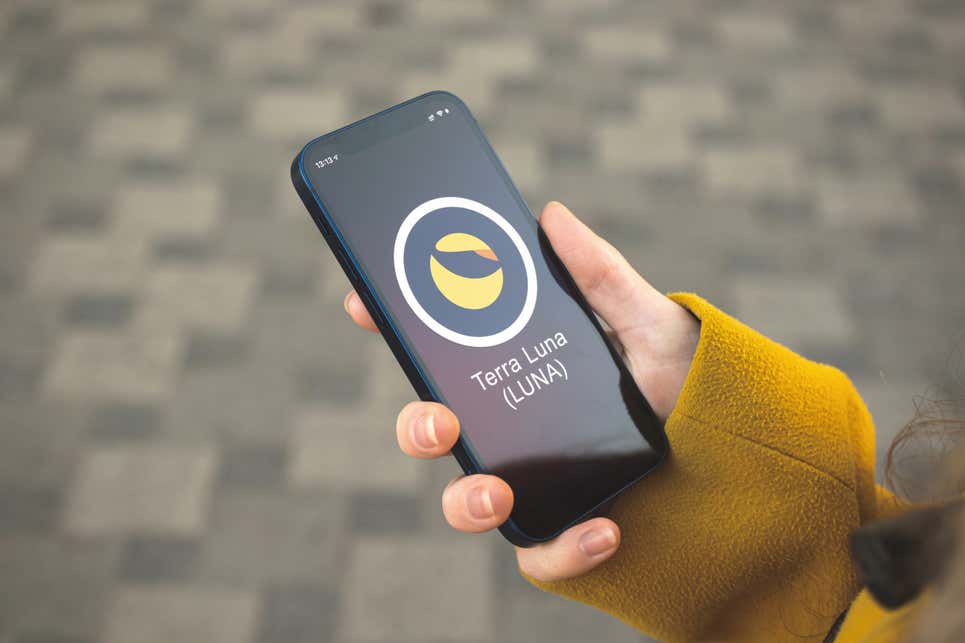Do Kwon, the founder of the Terra blockchain and its sidekick coin Luna, is planning a rebirth of sorts for Terra.
 |
| Photo: FellowNeko (Shutterstock) |
South Korean supreme court documents show that just a week before the price of TerraUSD and its sidekick coin Luna utterly collapsed, company founder Do Kwon and other execs decided to shutter their native South Korean headquarters.
The timing of the Terra blockchain price collapse compared to this latest reveal and the timing of big investors cashing out is adding more pressure on Terra execs to explain just what happened to their supposedly “stable” stablecoin.
South Korean online outlet Digital Today reported that Terraform Labs Korea decided to dissolve its Busan headquarters and Seoul branch April 30 during a shareholder meeting, according to documents from South Korea’s supreme court registry office. Those same documents are shared on this Reddit thread, though Gizmodo could not independently verify the documents. The headquarters was reportedly dissolved on May 4, while the Seoul branch was nixed a day later. That same weekend, Terra started to see fluctuations in its price, resulting in a full on crash.
The New York Times reported Wednesday that many of the big money investors in the Terra ecosystem were able to cash out of the company in the months before the big collapse, while Terra and Luna’s many other smaller retail investors and traders lost out big time. Users of the coin have reportedly lost millions of dollars in the collapse, when Terra’s algorithmically engineered stablecoin lost its 1-to-1 peg with the U.S. Dollar, causing a cascading effect where the price of both Terra and Luna plummeted.
Small time investors have not been happy. One even reportedly showed up at Kwon’s home in South Korea, repeatedly asking his wife “is your husband home?” before running off. Weeks after the collapse, the nonprofit Luna Foundation Guard revealed it had sapped billions of dollars worth of bitcoin from its reserves to try and stabilize Terra’s collapse, but the effort ultimately failed.
The Korea Times reported Friday that Korean prosecutors are now considering fraud charges against Kwon. Not only that, but international watchdogs are thinking about taking on the crypto bros to finally regulate what’s long been marketed as “decentralized finance.”
Meanwhile, the Luna Foundation has not heard a peep from Kwon in the weeks since its collapse, LFG governing council adviser Jonathan Caras told TechCrunch. The source further said that TerraUST was “pretty much defunct.”
Kwon had raised $200 million from investment firms over the years since Terraform Labs was created in 2018. The company is incorporated in Singapore, but the South Korean-born Kwon helped conduct business in his home country through the Terraform Labs Korea headquarters in Busan established in June, 2019. Kwon has been flying solo at the head of his company since Shin Hun-sung—who joined the company in 2019 as a co-founder—resigned in 2020.
Meanwhile, Kwon is already evangelizing a new kind of “Terra 2.0,” rebranding the old Terra and Luna as “Classic,” even though both coins are both being traded for practically nothing at the time of reporting. The governance proposal, which Terra community members can vote on, would eschew the failed algorithmic stablecoin, effectively replacing it with Luna on a new Terra blockchain. New Luna coins will be airdropped to classic users, according to Kwon. In his revival plan thread, Kwon stated that the failure of Terra’s peg is “Terra’s DAO hack moment - a chance to rise up anew from the ashes.”
So what’s new with this planned launch compared to the many choices of crypto around? Other than keeping the existing Terra infrastructure, not much.
Kwon’s original tweet said he was backed by 15 “terra builders,” while a bunch of crypto trading platforms Kwon tagged said they were all for the move. After an initial poll where the vast majority of users were against a hard fork, more seem to be signing onto the idea.
Tags:
Cryptocurrencies
